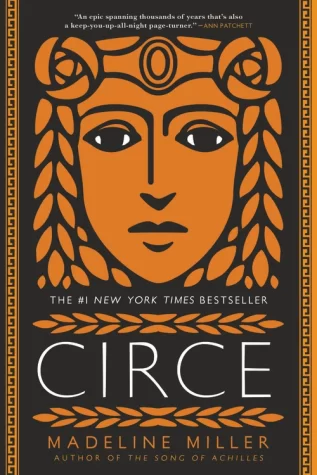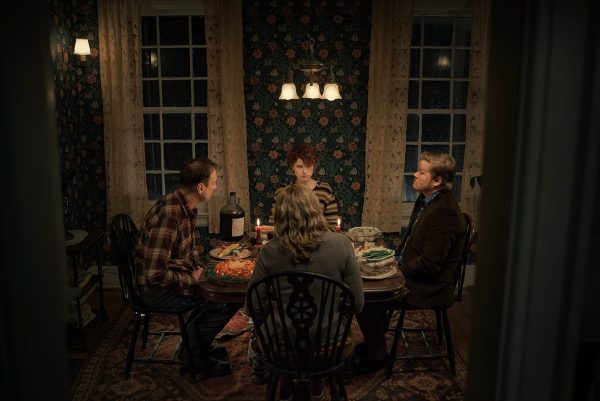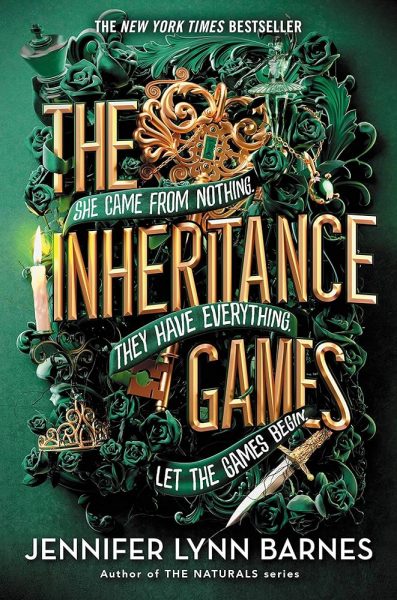Media Review: Circe

Think of Thor as part of the Avengers and Percy Jackson fighting the Minotaur. The myths at the base of these stories were written thousands of years ago, yet they keep coming back with new perspectives and relevancy. In the 2018 book Circe, author Madeline Miller spins an unusual classical tale: a woman’s coming of age and coming into power. She ruthlessly exposes the sexism entrenched in classical literature, and in doing so writes an ode to the struggles of women through the millenia.
Circe is based on Homer’s The Odyssey, in which the Greek hero Odysseus journeys across the sea, encountering various trials and monsters. Circe is one of these monsters: a fearsome and beautiful enchantress, only subdued by Odysseus’s charm and cunning. She turns his sailors into pigs, but he seduces her and she lets them go. Just as The Odyssey recounts Odysseus’ life, Circe recounts the life of the witch who fell in love with him — with a fresh feminist eye.
As a nymph, the lowest kind of goddess, Circe has no power except the influence that she can exert on men. Circe narrates, “That word, nymph, paced out the length and breadth of our futures. In our language, it means not just goddess, but bride.” When she’s born, her father immediately sizes up her beauty to figure out what rank of man she’ll be able to marry. She herself is not meant to have power. When her brother comes of age, he is given a kingdom of his own. She has no such opportunity. Similar to present day circumstances, women are continuously under supported in education and underrepresented in leadership positions; women are less likely to attend school, and make up only a fourth of the US Congress.
Eventually, Circe breaks away from her family and finds her own power — in magic, will, and her own cleverness. But no matter how much power Circe gains, she is not respected and must watch out for men who try to exploit her. She welcomes lost sailors onto her island, but when they find out she lives alone, they try to rape her. This explains why she turned Odysseus’ men into pigs — not because she’s evil, but as a means of self-defense. This reflects a reality that we still face today, where women learn to stay on-guard against unwanted sexual advances, and when the justice system fails them, rely on their own means for self-defense.
Circe is an excellent example of how women’s acts of fighting back against disrespect and exploitation lead them to be labeled as villains. Circe describes the choice she is given: “Would I be skimmed milk or a harpy? A foolish gull or a villainous monster?” If she shows any weakness, she’ll lose all respect, but if she shows no weakness, she is exiled from her family. The fear and hatred of powerful women is not just a theme of Circe; it’s evident in the way the original myth portrays her: an evil witch living alone, turning poor innocent sailors into pigs. This is a trope that remains popular in modern media: female leaders report having to perform a “balancing act” between being seen as too emotional and being seen as cold-hearted.
Miller destroys this concept — that a woman cannot be feminine and powerful at the same time — when she describes Circe’s decision to have a child. In a book filled with harrowing trials and monsters, this was the part that impressed me most. In most fantasy books, pregnancy and motherhood are glossed over, but Miller zooms in on the experience. She describes Circe’s pregnancy and labor in detail: the morning sickness, the agony of labor, the fear of something going wrong. For Circe, childbirth is not a nasty requirement of being a woman; it is a deliberate act of heroism, bringing a life into the world through blood, sweat and tears. Circe made me appreciate the bravery of those who choose to give birth and those who are forced into it.
By telling a story set in an ancient world, Circe shows how long women have been fighting the same battles. Although women’s rights have improved drastically, the same issues persist. I hope that Madeline Miller’s masterpiece will help people empathize with these issues and appreciate the power of a woman — or goddess — who faces them head-on.

Indigo is a sophomore and a reporter for The Lowell. She appreciates many aspects of the world, including Karl, the color yellow, and the existence of the internet. She's devoted to the study of human beings and the way they communicate. You can find her muttering Integrated Chinese dialogues to herself on the bus, meticulously color-coding her weekly planner, or eating raw vegetables in unlikely parts of campus.








